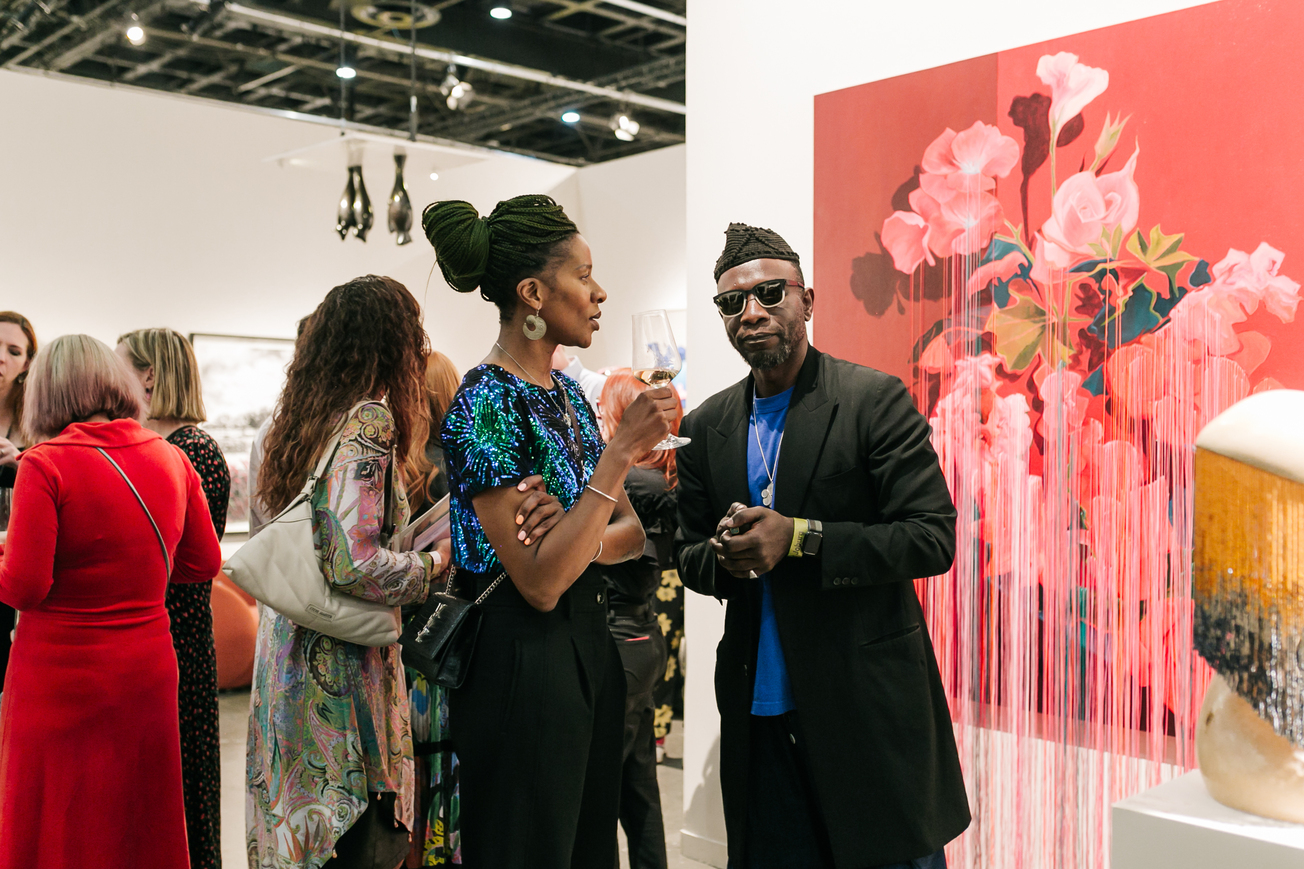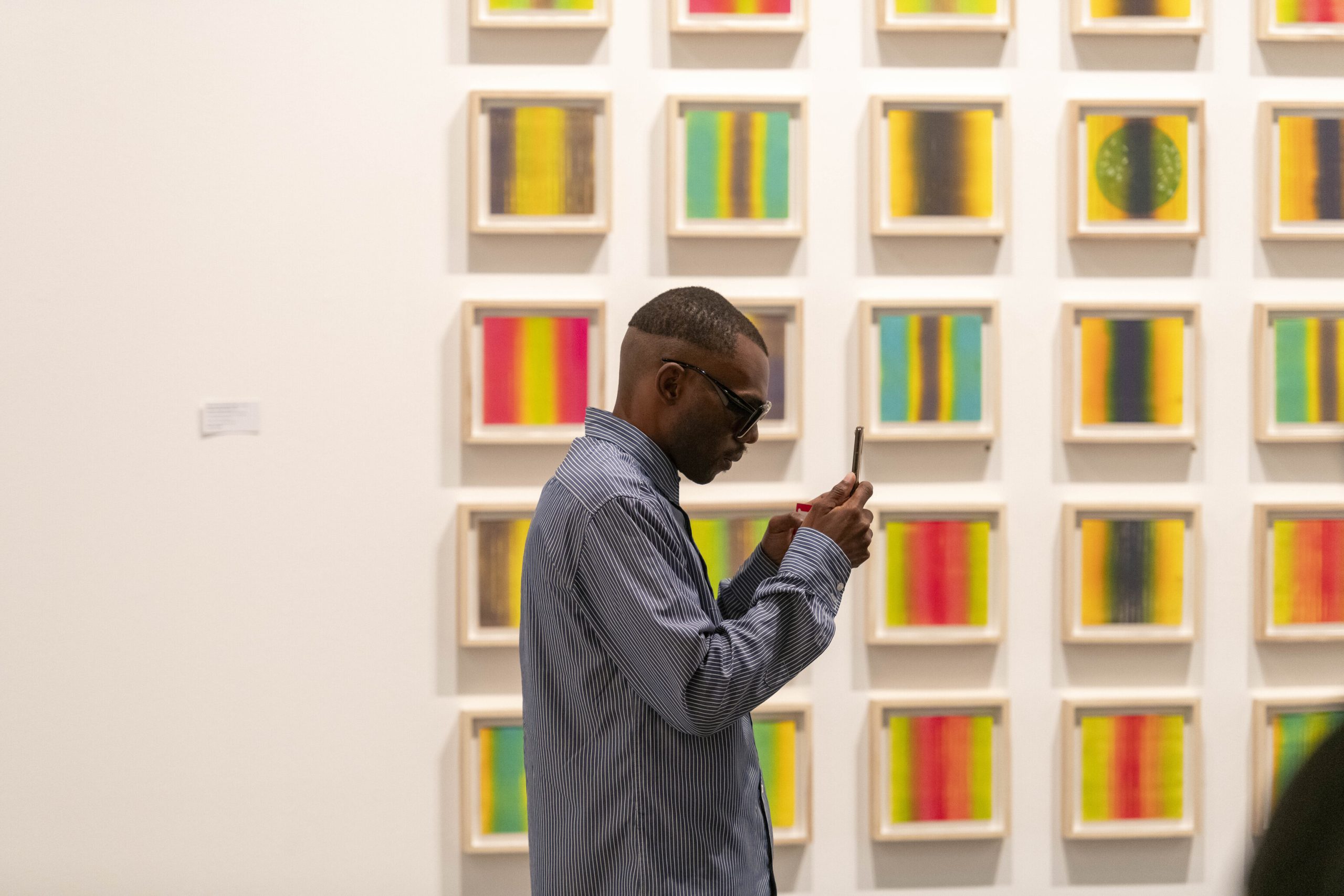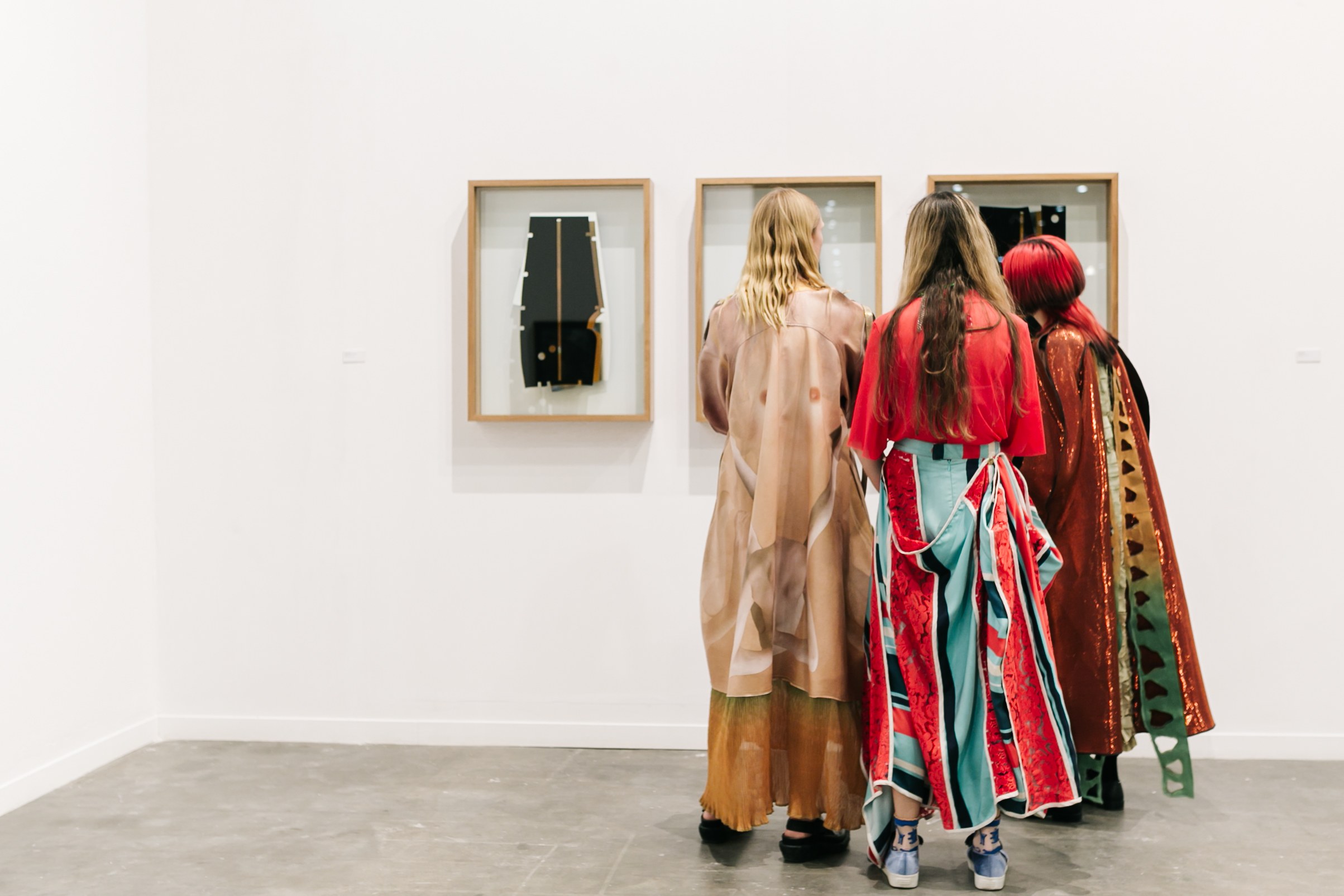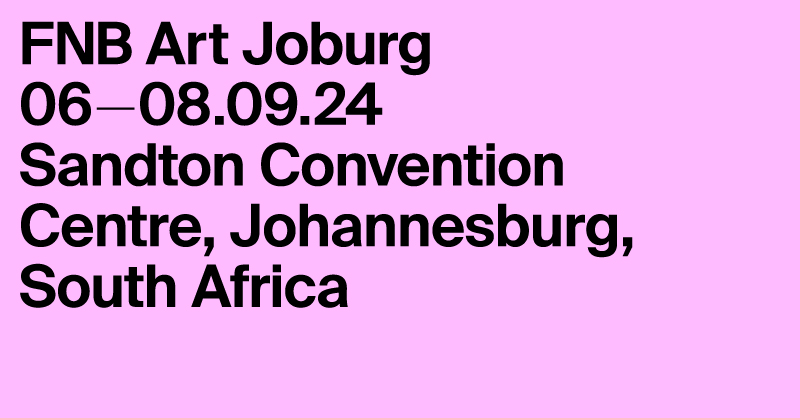Reeling from the maddening maelstrom of this menacing city, I found myself waiting at Father Coffee in Rosebank, with enough time to feel reasonably ready to meet one of its most influential characters. I knew who he was, but now for a few moments, I had a chance to know him. Mandla Sibeko, the director and owner of “Africa’s oldest art fair”, the FNB Art Joburg, whisked into the place with the sort of gravitas that would make a hurricane stand still!
Mandla Sibeko is also the founder of Seed Capital Investments, owning significant assets including a media company, on top of the FNB Joburg Art Fair, which in 2018, featured over 60 galleries from 14 countries. In between numerous meetings with politicians and dignitaries, Sibeko took the time to sit down with BubblegumClub in a momentary yet mindful mischief. I began by asking what it’s like to be Mandla Sibeko. “What a good question!” he exclaimed. “It’s, um, it’s fun. But it’s also tough, especially balancing family life with three kids under four.”
Despite his busy schedule, Sibeko is so defiantly generative in South Africa’s art ecosystem, that he is actively shaping it. In jest, I called him an art world influencer and he responded, “If I can influence someone, get to meet the chairman, and talk to him about culture, and I can influence them to think in a particular way, I think that’s fantastic. […] I mean, it’s just navigating and managing. A lot of it, it’s the same people, which goes to question how much change has taken place.” Rivetingly, in a rare yet rather hopeful moment of sweet melancholy, Sibeko vocalised the violence of this perplexingly exploitative art canon to which we are tethered.
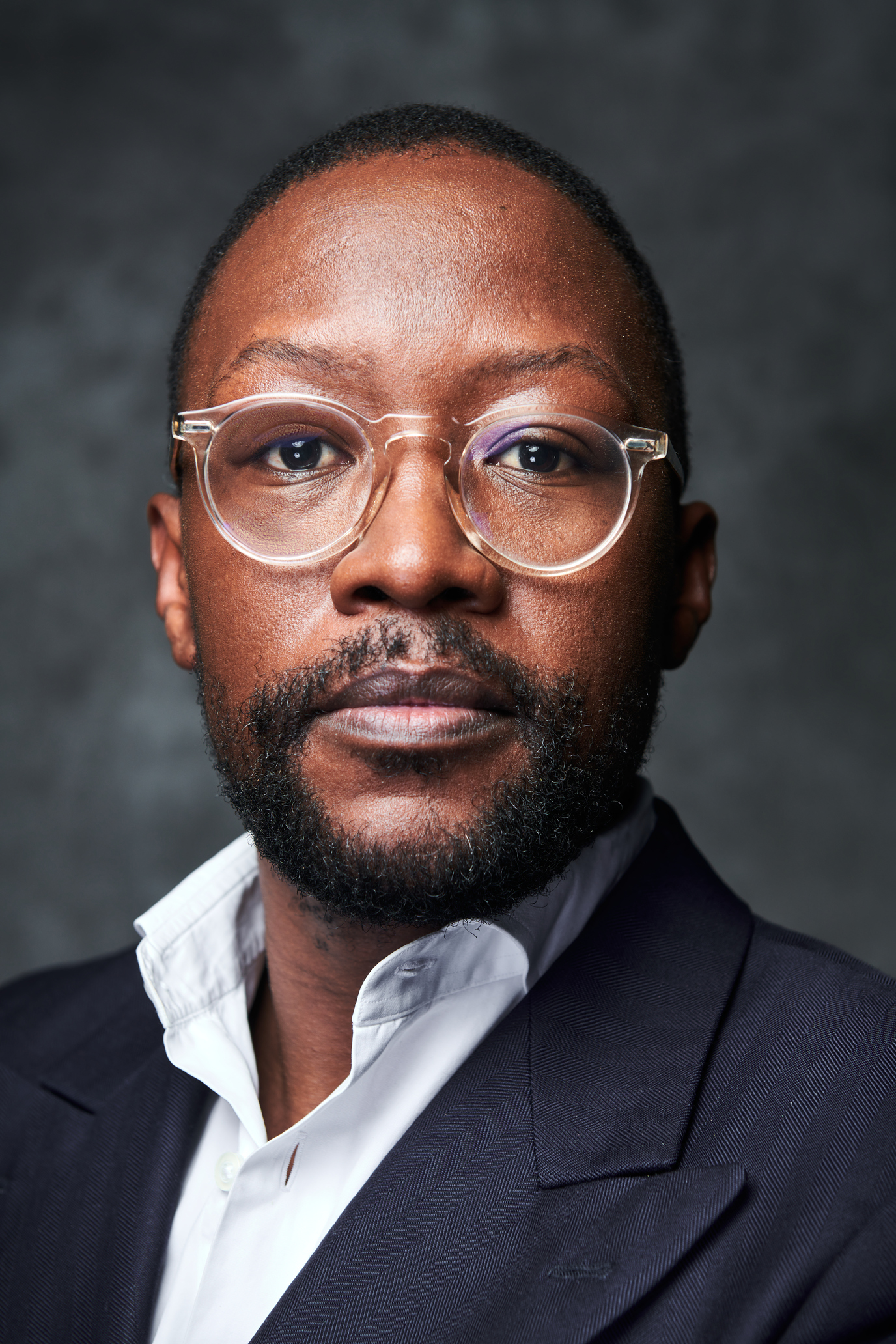
Nonetheless, when I asked Sibeko about his formative experiences of art, he sounded agreeable in the most serendipitously South African way. “(My early) experiences had nothing to do with art, but it was about appreciation […] I grew up with my mom [but] I also had guardian parents who were Jewish, and I was navigating different worlds. […] They are in their late 80s now […] patrons who understood how to support artists. I got to see that world, and I was also influenced [which] played a significant role in opening up my world. I was involved in leadership roles from a young age […] Later, traveling through Europe and visiting galleries and museums, I saw how everything was connected to art, which deeply influenced my perspective.”
But for someone who had such a wholesome introduction to art, Sibeko also rightfully critiqued the South African art scene’s historical exclusion of Black voices and wanted to revolutionise the space. “I walked into the art fair for the first time, and I thought, this is the contemporary world I want to be part of. I couldn’t relate to the art spaces at the time. For some reason, I found them very white,” he says, denoting a realisation that was deeply personal but also profoundly political. From then on, Sibeko made a commitment to manifest more spaces where Black artists and patrons could begin to witness their own true reflections.
“What’s exciting is seeing more and more generations of people coming through. Younger, very energetic, with ideas for who they are, where they come from, where they want to go. So that for me is very exciting.” Sibeko’s savvy, particularly in navigating the business side of the art world, is something many art students and art professionals alike could learn from. When I asked, he answered with a cool mix of humility and pragmatism. “We’ve remained sustainable by finding a model that works for us—it’s not on the level of global fairs like Basel or Frieze, but it’s our own formula.”
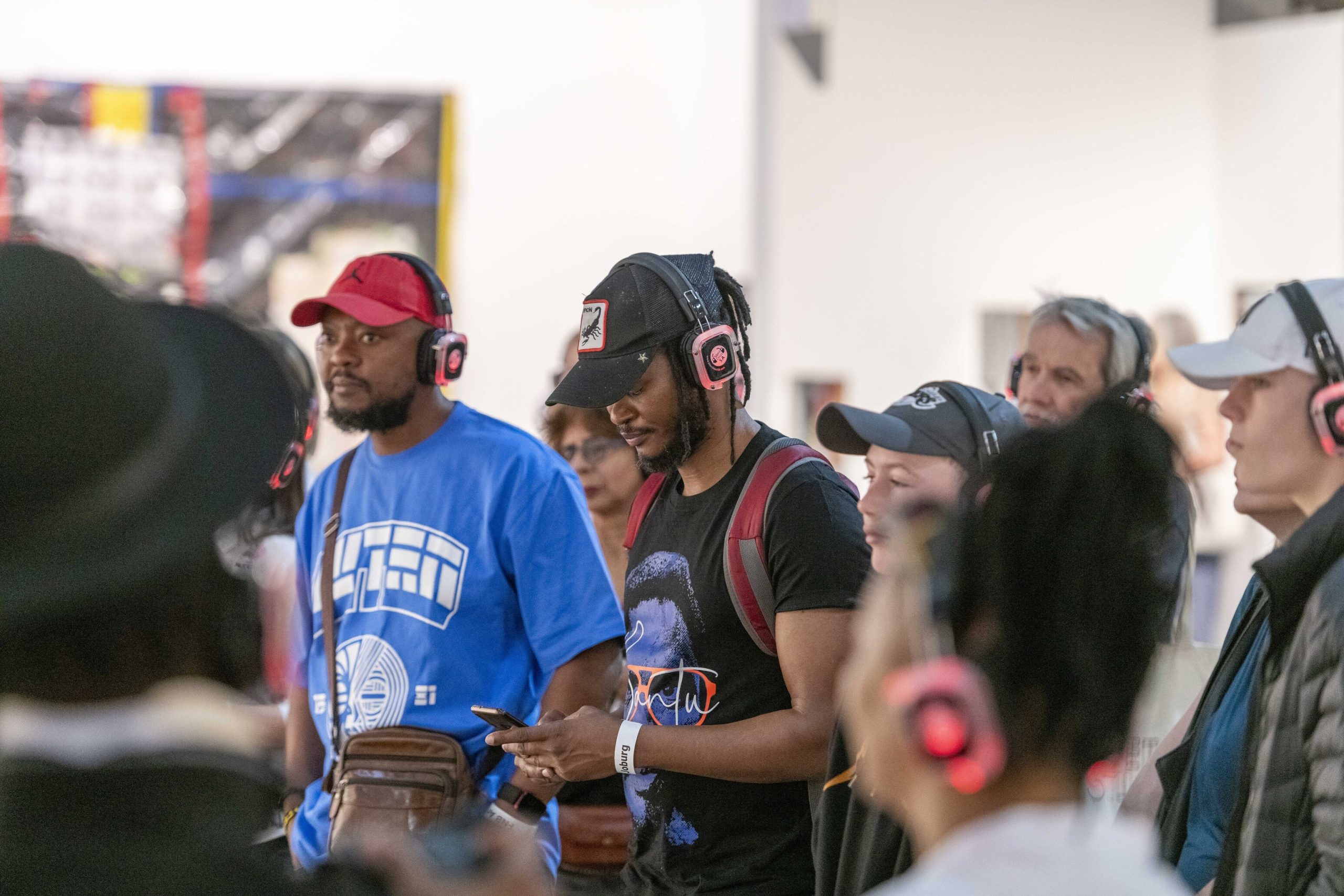
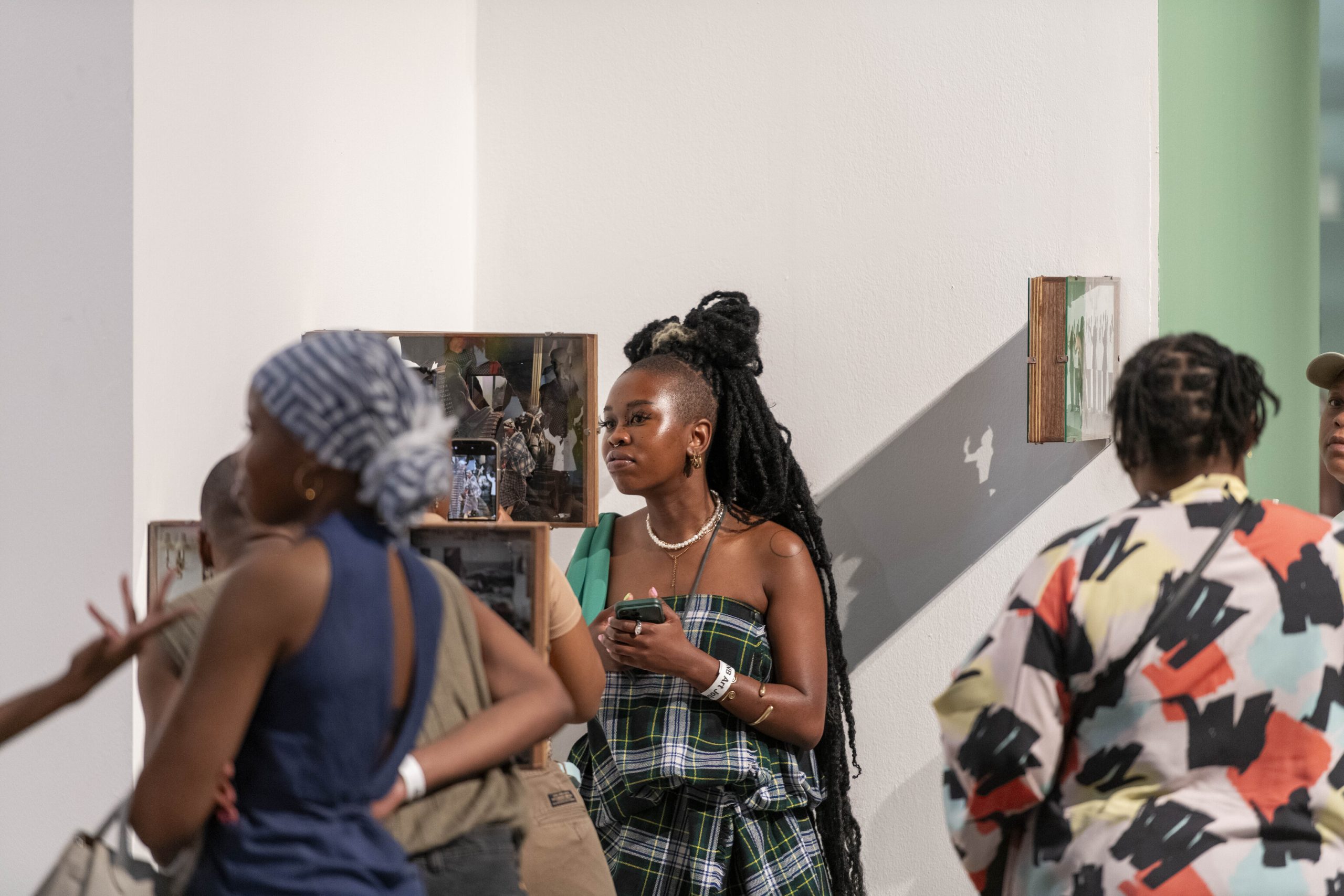
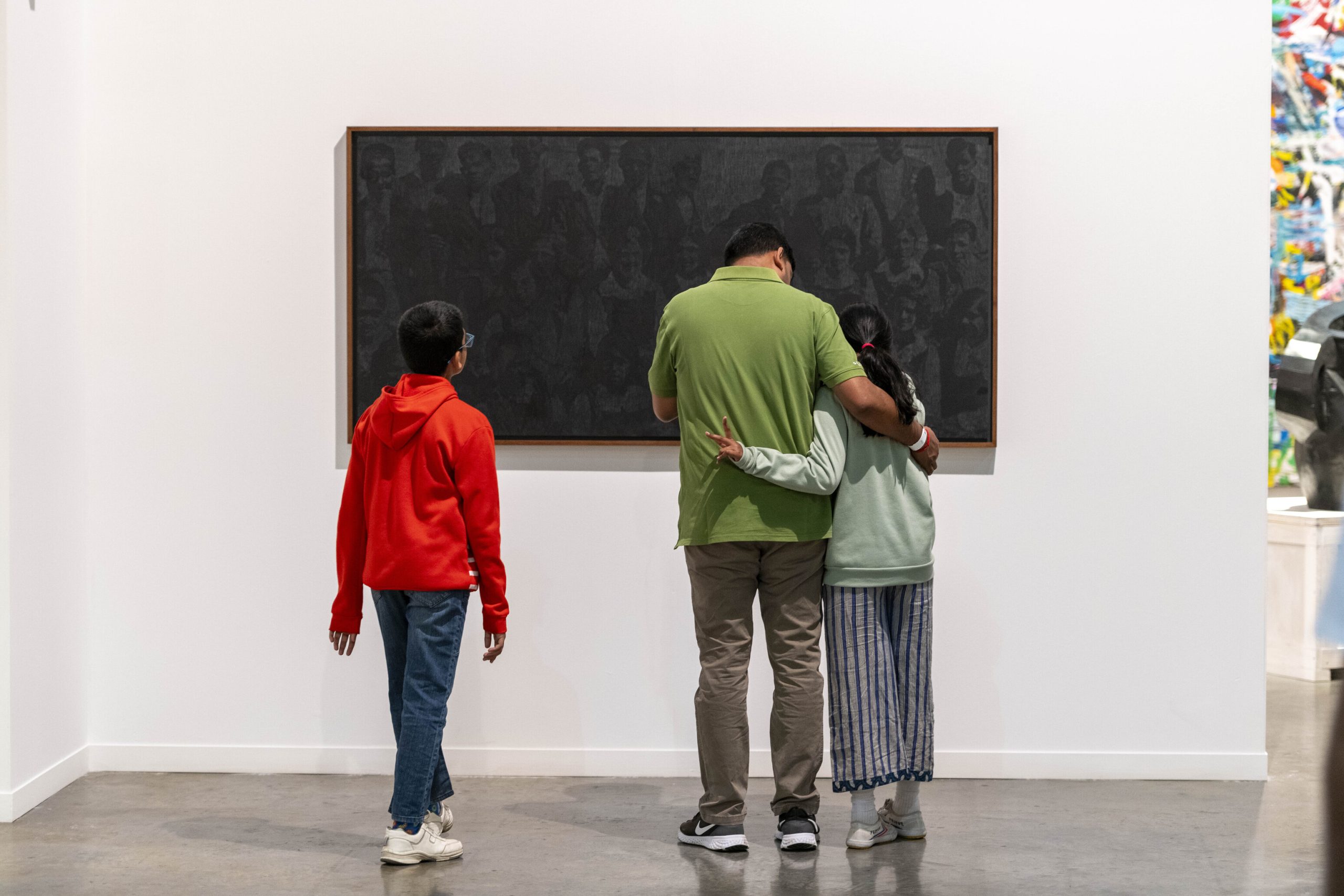
Sibeko’s practice is subversive in that, the businessman has an advantageous knowledge of money and culture, and therefore his comfortability as a leader playfully disrupts colonial power structures and norms that would have him operate as an unwittingly passive force within the art world. His suitability for multiple modes becomes a form of resistance, exposing the contradictions of the commodifications of African life in art, yet subtlety and suavely reclaiming space for marginalised voices and knowledges.
South Africa is now home to world-class institutions like Zeitz MOCAA and the Norval Foundation, and its collector base continues to grow in sophistication. Local galleries like Stevenson and Goodman are gaining yet more prominence, reinforcing SA as one cultural hub for the continent. All the while, FNB Art Joburg continues to advance its position in this fiercely flourishing art scene and with the magnetic Mandla Sibeko and his team at the helm. What a sight to behold!
As quickly as he’d swept into the joint, the man had swiftly vanished again! Yet so much had been benefited from the brief encounter that it took much more than moments to digest. Whether you want to spot him in person or see his work activated, you oughta get yourself a ticket to this (af)fair! Art Joburg is not just a fair, it’s an opportunity for all kinds of African wayward practices—an unmissable union for art lovers, collectors, and those simply seeking the thrill of observing African futurities unfolding right before their very eyes.
